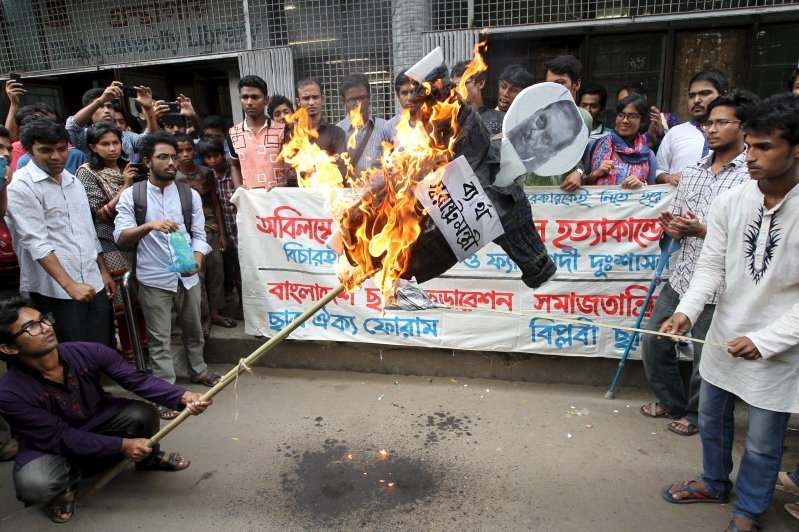
About 1,000 Bangladeshi authors and teachers marched through the streets of the capital on Tuesday, asserting their right to free speech days after a suspected Islamist group attacked writers and publishers critical of religious militancy.
Bangladesh is in the throes of a violent struggle between hardline groups bent on turning the Muslim-majority nation into a sharia-based theocracy on the one hand, and Prime Minister Sheikh Hasina determined to root out extremism on the other.
On Saturday, a publisher was hacked to death in his office in Dhaka by men wielding sharp weapons, hours after similar attacks on two writers and another publisher.
Despite the climate of fear caused by the attacks that follow the killings of four secularist bloggers this year, writers turned out in large numbers for the rally in Dhaka.
"No one is safe. First they killed bloggers. Now they are targeting publishers. Soon they will attack anyone who is progressive-minded," said Khaledur Rahman, an author who is himself facing a death threat.
A branch of al Qaeda claimed responsibility for the attacks but police said they had not been able to verify that claim.
Police joint commissioner Monirul Islam said investigators were looking closely at a home-grown group called Ansarullah Bangla Team (ABT) as the latest attacks bore the hallmarks of earlier killings of bloggers for which it took responsibility.
The little-known Islamist group wants sharia rule in secular Bangladesh and has vowed to kill critics of extreme Islam.
"They just tell these youth that the bloggers are the enemies of Islam. Nobody has read the blogs. They just blindly follow what the ABT says," said a police investigator.
Tensions have risen in Bangladesh since Hasina ordered Islamist leaders suspected of atrocities during the 1971 war of independence from Pakistan to be put on trial for war crimes.
Her rivals say Hasina is settling political scores by hunting down members of the Jamaat-e-Islami, an ally of the main opposition group head by former prime minister Khaleda Zia.
The latest conviction of former opposition minister Salauddin Quader Chowdhury for war crimes has reignited protests that the trials are politically motivated.
U.S. Senator Patrick Leahy in a letter to the Bangladesh embassy in Washington D.C. said Chowdhury was denied the opportunity to present evidence to the war crimes tribunal that he was out of the country at the time of the alleged offences.






